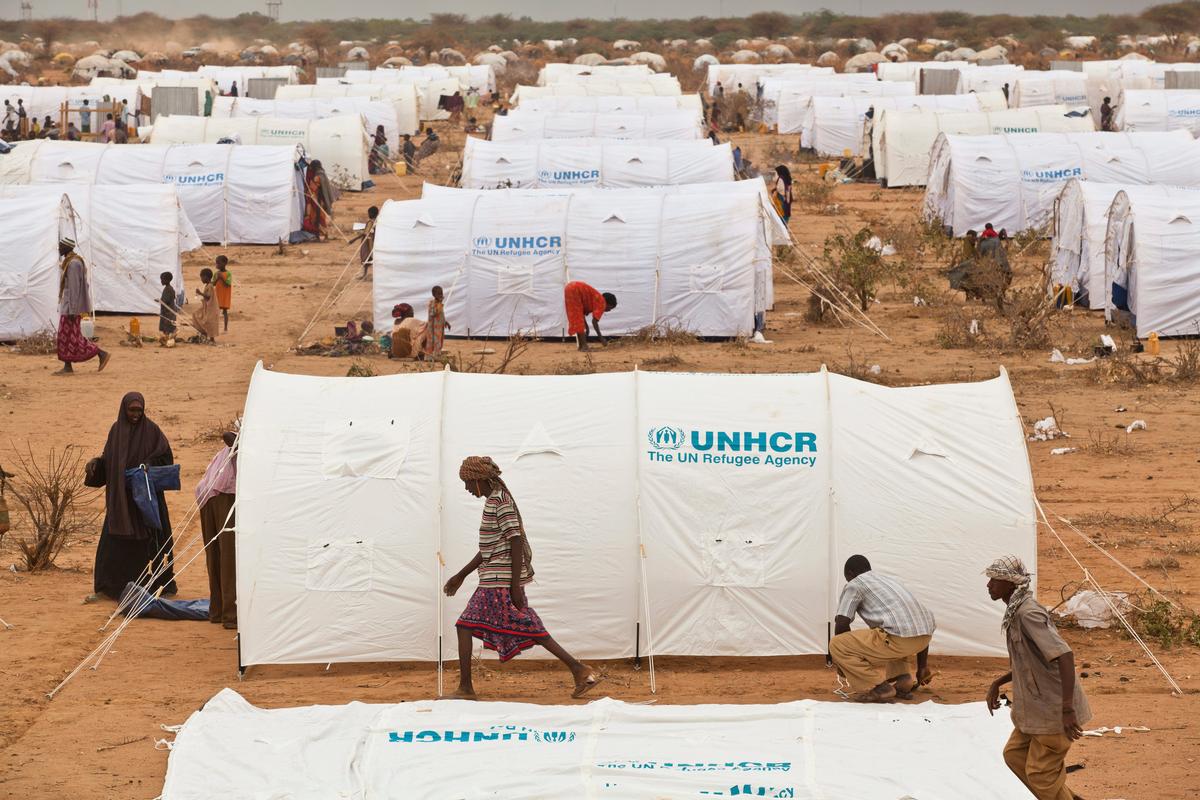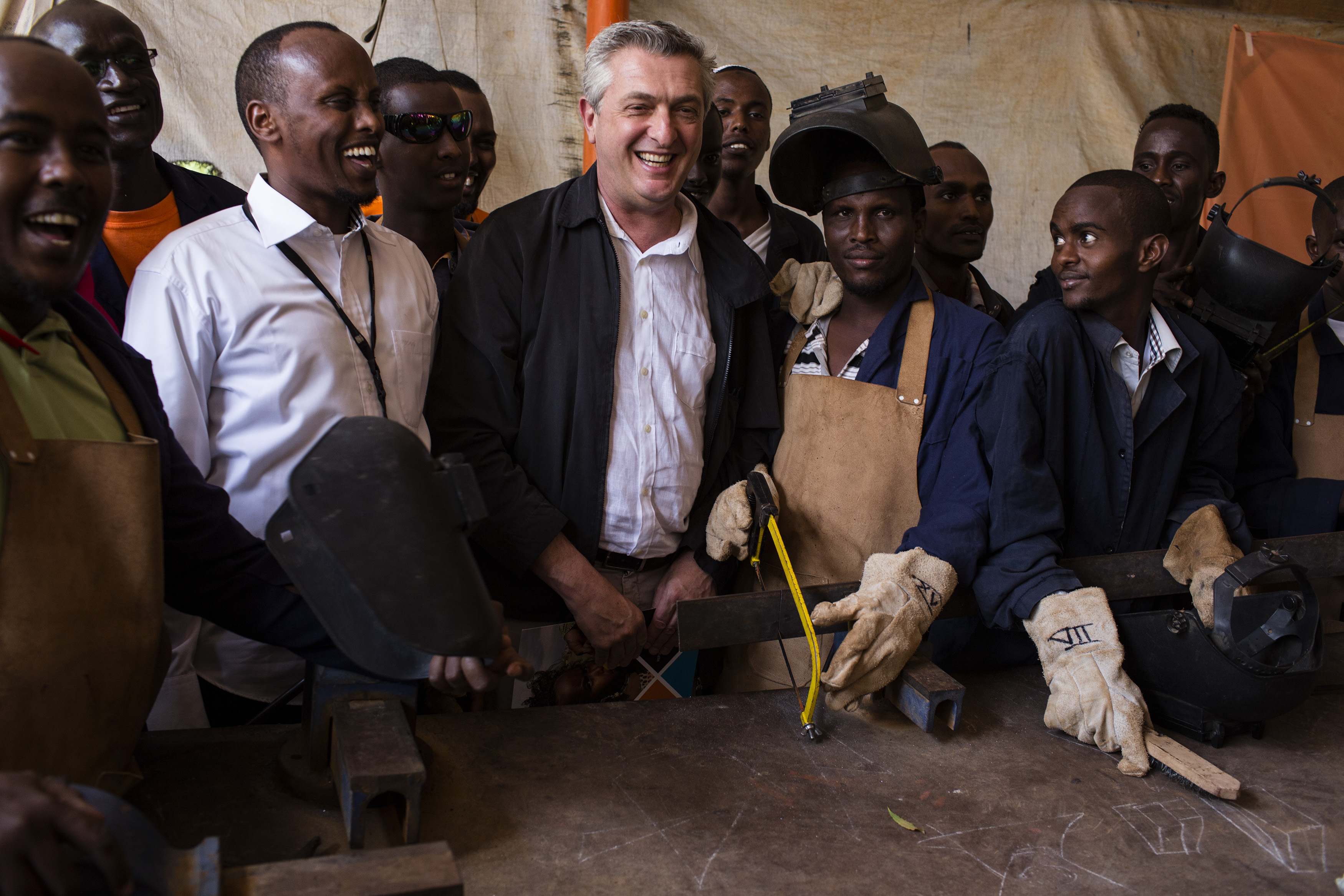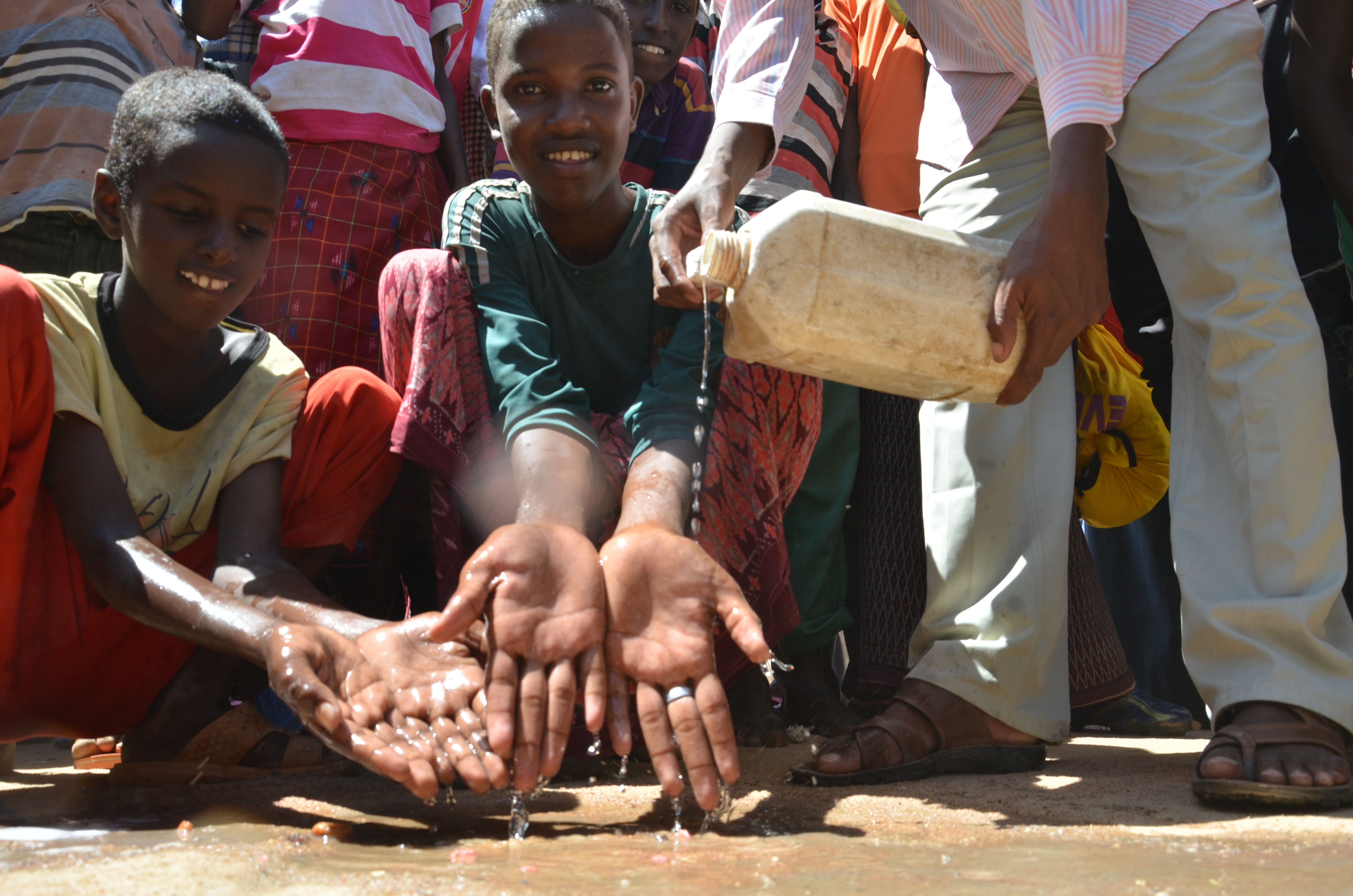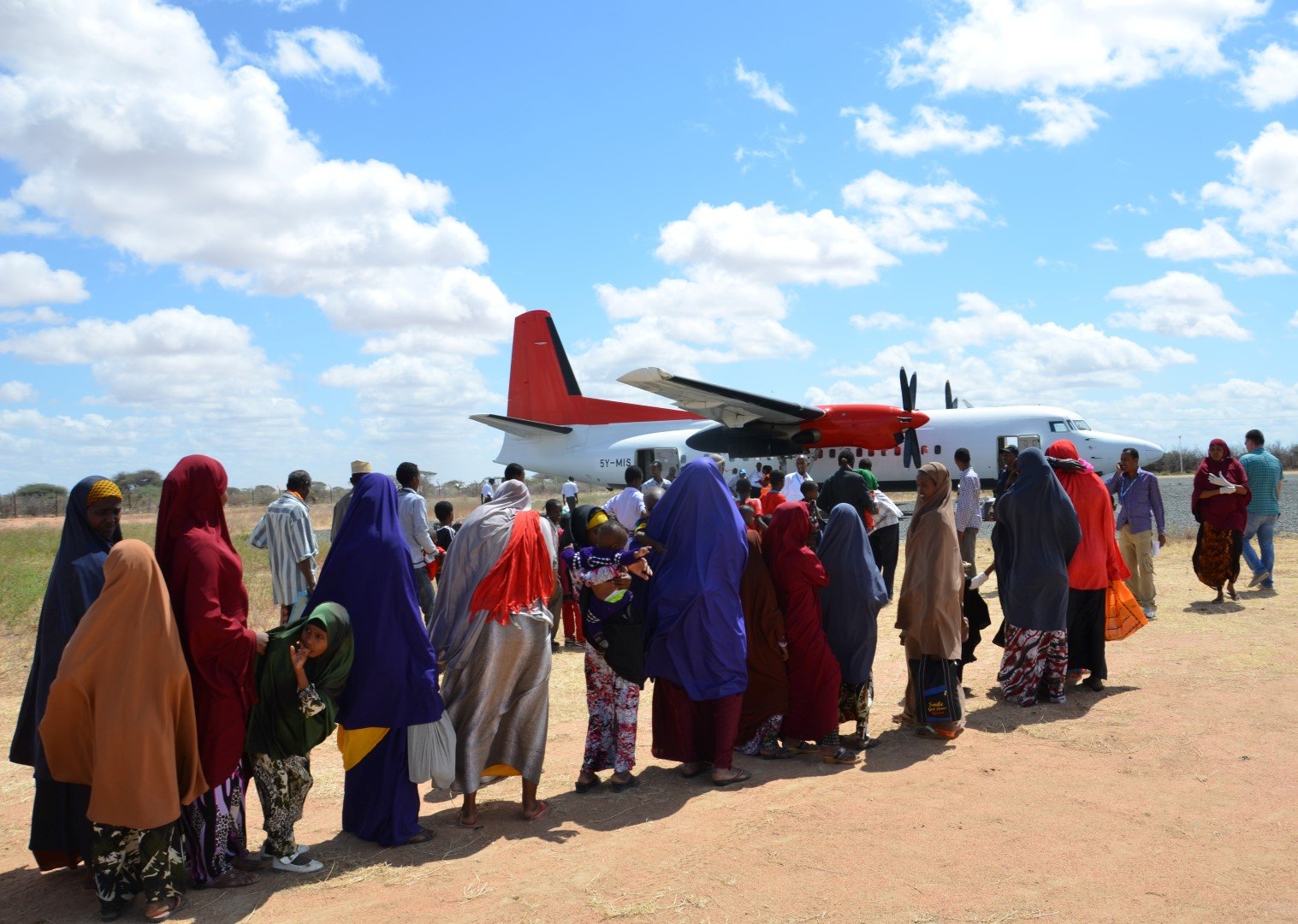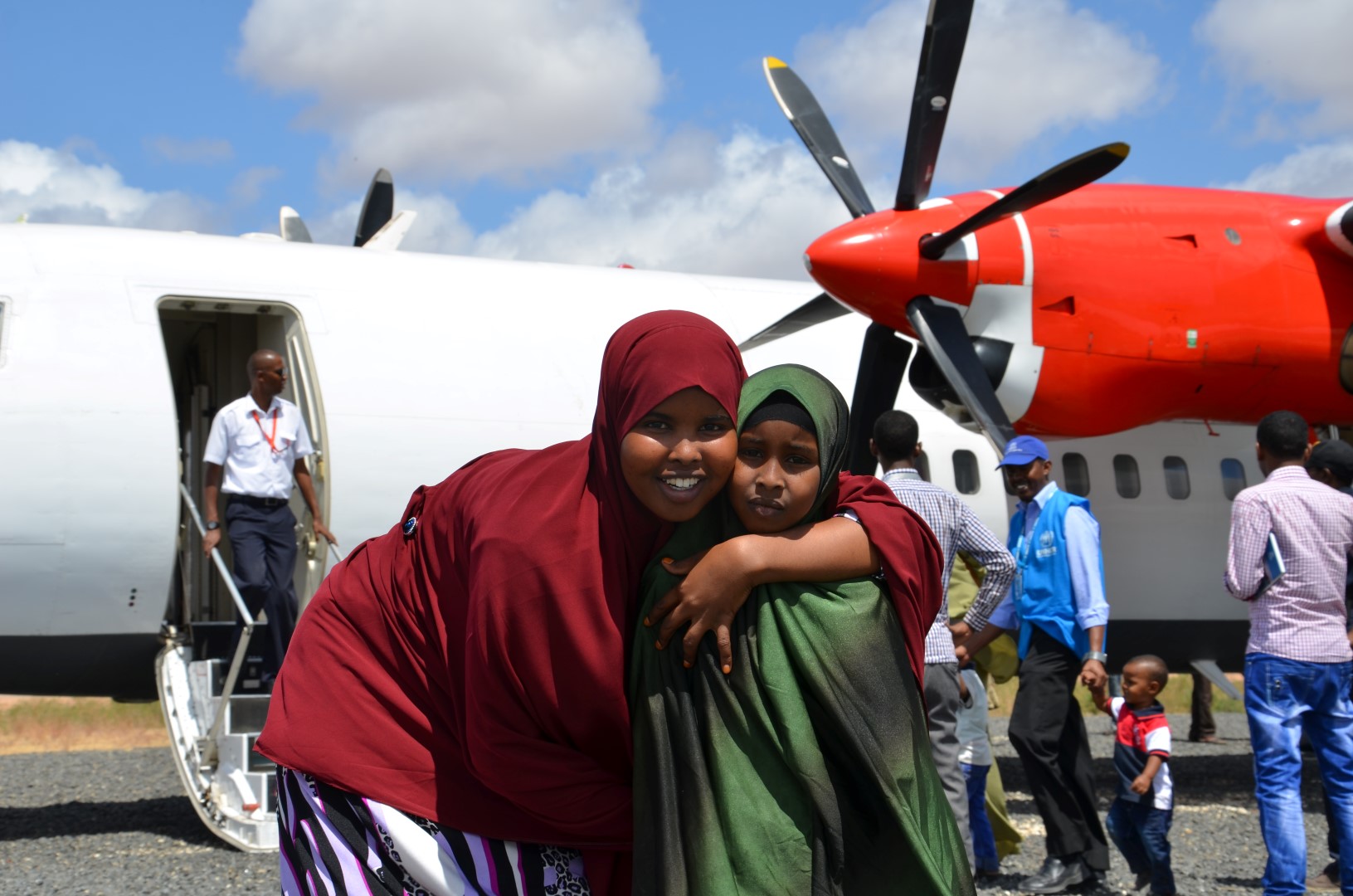New kitchenware show Dadaab's refugees that camp has not gone to pot
New kitchenware show Dadaab's refugees that camp has not gone to pot

DADAAB, Kenya (UNHCR) - Marian Mohammed Ali wearily walked back to her home of 10 years in Dadaab refugee camp clutching a see-through plastic bag. In it was a variety of basic kitchen utensils - mugs, bowls, a cooking pot, two knives and two jerry cans for her and her four children. This was the first such supply for her family in over five years.
Her neighbour, Halima Abdi Mohammed, sat in front of the family tukul (a dome-shaped structure made from sticks and grass used as shelter by the Somali community) holding one of the new aluminium mugs in her hand. She turned it around and around, scrutinising it, before placing it on a rug by her kitchen hearth among a handful of blackened mugs that her family has used for several years for their cha, the sugar-filled tea made by the Somalis.
The last general distribution of household supplies, commonly referred to as non-food items, to the refugee residents of Dadaab was in 1997. Since then, funding difficulties have hampered plans by the UN refugee agency to supply much-needed domestic items to the more than 130,000 refugees living in the three camps that make up Dadaab. Ad hoc distributions were, however, made to the most vulnerable among them, including the elderly, unaccompanied children and female-headed households.
Some refugees resorted to selling part of their food rations to meet the increasingly-pressing needs for basic household items, while smaller numbers who received incentive payments for their work in the camps used some of their earnings to buy cups, plates or water buckets from the local market.
In mid-August, Dadaab refugee camp burst into a hive of activity as more than 3,000 family representatives, many of them accompanied by family members, braved the heat of the semi-arid northern Kenya and joined long queues to receive their allocation of domestic supplies.
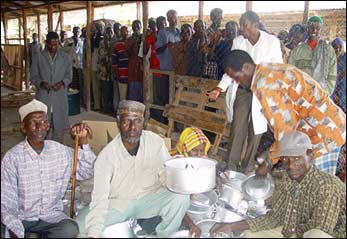
"This is reassuring, we thought the world had forgotten us," said Mohammed Ebrahim Musa, a community leader at Ifo refugee camp, one of the three camps that make the expansive Dadaab camp.
Each head of family was required to present a ration card as proof that they are genuinely registered at the camp before receiving a set of items that included jerry cans, bowls, mugs, cooking pots and knives. In addition to this distribution, UNHCR plans to provide plastic sheeting to each refugee family to help them improve their tukuls - many of them in disrepair.
Refugees complain that some of the tukuls leak during the rainy season because the plastic placed under the grass used to thatch the crown of the tukul is badly worn out. In some areas of the camp, the tattered blue plastic sheeting can be seen flapping in the wind like small blue flags.
During the long dry spell that characterises much of the area, the interior of the tukul is sun-baked, while holes in the plastic sheeting let in wind and sand from the daily dust storms.
Refugees in Kenya are dependent on aid agencies for their survival. The Kenya government maintains a camp-confinement policy that restricts the movement of refugees outside the camp. They are, therefore, unable to fend for themselves. Even those with skills have been unable to get work permits.
"We live here like birds, we have to be given everything by UNHCR and other agencies and as you know, a beggar does not choose," lamented Annab Juma Musse, a camp resident since 1992.
The new government in Kenya has said it will improve the situation of refugees in the country by giving them opportunities to work. But until then, refugees like Halima Abdi Mohammed and Marian Mohammed Ali must depend on aid agencies to meet their most basic needs for food and other items.
By Emmanuel Nyabera
UNHCR Nairobi

